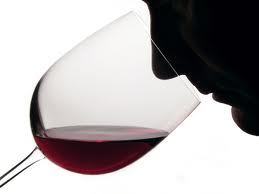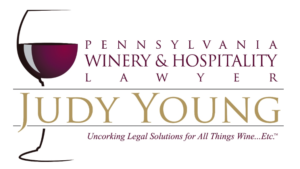Posts
Governor Wolf Orders All Law Offices To Close
/0 Comments/in Hospitality Business, New Jersey Wine Law, Pennsylvania Wine Law /by Judy YoungGovernor Wolf has ordered all non-life-sustaining businesses, including law offices, to close effective immediately. The governor’s order, remains in effect until further notice. The order allows “virtual or telework operations (e.g., work from home), so long as social distancing and other mitigation measures are followed in such operations.
We are all facing an unprecedented situation. As COVID-19 continues to spread, there’s nothing more important to us than the well-being of our clients. Pennsylvania Winery and Hospitality Lawyer has operated virtually for over a decade and we will continue to do so throughout these difficult times. Trust that you will be able to reach us so that we may continue to serve your legal, contract, or business needs that are important to your wine or hospitality business.
While these times are unprecedented and circumstances are fluid, we also know that they are temporary. We are inspired to see our people and community coming together. Please take care of yourselves, your family and the ones you love. We look forward to serving you.
Judy M. Young, Esq.
Principal, Pennsylvania Winery and Hospitality Lawyer
Are Pennsylvania Wine Buyers Discerning Worthless Wine?
/0 Comments/in Wine News of Interest /by Judy Young U.S. wine drinkers are the biggest wine consumers in the world. Perhaps that’s good news for the American wine consumer. Because it didn’t take long for some very discerning wine drinkers to realize they were drinking counterfeit wine. In other words, fake wine bottles with fake wine labels were being shipped overseas for consumption, with the expectation it be sold at higher prices. Thanks to some discerning palettes, the worthless wine was readily identifiable. Are you drinking worthless wine? Watch below:
PLCB Regulatory Changes Comes To Pennsylvania Limited Wineries
/0 Comments/in alcohol legislation, Pennsylvania Liquor Code /by Judy YoungEffective March 1, 2014, the Pennslyvania Liquor Control Board announced regulatory changes that affect Limited Winery Licensees around the state. The PLCB has eliminated the requirement that prohibited in state wineries from selling bottles for less than the same wine sells for at the state operated Wine and Spirit Stores. The recent change is designed to promote in-state wineries. For more read: PLCB Changes Allow Wineries To Sell Products Below The State Sell Price.
Taking Care Of Business: The Keys To Success For A Healthier Restaurant Or Hospitality Business
/0 Comments/in Hospitality Business /by Judy YoungStarting or running a successful restaurant or hospitality business can be extremely overwhelming. You need more than just your desire and passion to excel. Careful preparation is key to avoiding making painful mistakes along the way. Because, at the end of the day, diners vote with their forks. And…you want them to vote for you.
overwhelming. You need more than just your desire and passion to excel. Careful preparation is key to avoiding making painful mistakes along the way. Because, at the end of the day, diners vote with their forks. And…you want them to vote for you.
Getting the vote of your customers means your food or wine business enterprise will need to emerge as a success. If you currently own or plan to own your own restaurant, small chef eatery, catering, wine business or food selling dynasty here are a few good tips that will help you avoid some unnecessary pitfalls as you grow your successful hospitality enterprise.
A solid business plan is your roadmap to your future. Make sure you have one. A good solid business plan will help you to focus on your location, your anticipated customer base, and what measurable goals you’ll need to make to turn a profit. While you may be an awesome chef, caterer, or wine entrepreneur your ability to stay in business is also a function of your ability to control your costs. A business plan will help you to identify and track your goals and how well you are doing. A good business plan will cover a general description of your business, your financial management and marketing plans.
Develop a cash flow statement. A cash flow statment will project when you will need to borrow money, hustle for more business or reduce your debts. It will also guide you as to when you need to make those much needed capital investments and improvements into your business.
Carefully preserve you credit. Do not borrow for payroll or short term needs. These should be taker from your current cash flow.
Build a relationship with your bank. When it comes time to deal with loans or lines of credit, having a friendly relationship with your banker can be extremely beneficial.
If you feel you lack an appropriate business skill set because your real love is your focus on your food, then be sure to retain the right lawyer to look over your business contracts and to conduct your contract negotiations.
You may want to create a Partnership with another individual or entity not just for and injection of money, but for sound business advice. Alternatively you may want to enlist the services of a business or restaurant consultant who specializes in the restaurant industry. This can be a good resource to develop your ideas or help you to implement a successful business strategy.
Develop good employee relations standards. Pursue a good understanding of your federal, state and local labor laws. You want to avoid unfavorable legal action taken against you by knowing how these laws affect the way you need to conduct your business on a daily basis.
Visit your local planning department in your municipality to educate yourself on applicable zoning, parking, signage, noise, sewage and other requirements that you’ll need to know to cut through the red tape necessary to operate your business.
If you plan to serve liquor in your restaurant you’ll need to protect your business investment by ensuring that you’re properly protected from suits filed by 3rd parties for damages or injuries caused by patrons imbibing in your establishment. Invest in liquor liability training procedures for you and your restaurant staff.
If you incorporate these tips into the daily operation of your business, you will be well on your way to running a successful hospitality enterprise. Keep you eyes on the prize and remember the big picture. Success won’t just be measured in metrics alone but will be expressed with the people connections you make with your food. Now go out there and get your votes.
After-all, you’re taking care of business.
Here’s What Every Pennsylvania Liquor And Limited Winery Licensee Should Know
/2 Comments/in alcohol legislation, Pennsylvania Liquor Code /by Judy YoungPennsylvania’s Governor Corbett recently signed into law Act 11 (HB 148) which has made numerous changes to various sections of the Liquor Code. The Act made changes include adding a definition of “happy hour” and permitting retail liquor licensees to hold happy hour pricing up to four (4) hours per day and up to fourteen (14) hours per week. “Happy hour” is now defined as “the period of time during which a licensee discounts alcoholic beverages”. While the maximum period remains fourteen (14 hours per week, licensees will be able to adjust the length of their daily happy hours to take advantage of slow/busy days as long as the maximum limits are not exceeded. The hours need not be consecutive, but prohibitions against giving discounts between midnight and closing remains intact.
Three large changes have occurred for Pennsylvania’s Limited Wineries.
1) Effective immediately a limited winery can sell food for consumption on or off the main licensed premises and at its additional Board approved locations. It can also now sell wine by the glass at both its main premises and its satellite locations.
2) Effective immediately, a limited winery is now allowed to sell its alcoholic products from 9:00 am to 11:00 p.m, extending from the old 9:00 p.m. closing. The old law regarding expanded hours for the holiday period has been deleted.
3) Effective July 28, 2011, a limited winery will be able to apply for a “farmers market permit” for the sale of its product at more than one (1) famers market at any given time. The permit fee is $250.00 annually and there is no limit as to the number of days it can be used in that year. The limited winery can sell by the bottle or in case lots. All sales must occur during the standard operating hours of the farmers market. Samples must be free and cannot exceed one (1) fluid ounce per brand.
For more on the new changes to the liquor laws read: What Licensees Should Know About Act 11 of 2011.
Does The Pinnacle Of Professional Achievement In The Wine World Excite You?
/0 Comments/in Wine News of Interest /by Judy Young Does The Pinnacle Of Professional Achievement In The Wine World Excite You? Do you have a serious interest in wine? If so, perhaps you are Pennsylvania’s future Master of Wine! A Master of Wine is someone who has demonstrated through rigorous examination, a knowledge or all aspects of wine and ability to communicate their wine knowledge clearly in order to bring wine communities together.
Does The Pinnacle Of Professional Achievement In The Wine World Excite You? Do you have a serious interest in wine? If so, perhaps you are Pennsylvania’s future Master of Wine! A Master of Wine is someone who has demonstrated through rigorous examination, a knowledge or all aspects of wine and ability to communicate their wine knowledge clearly in order to bring wine communities together.
It is said the “hardest test of knowledge” in the wine world is the Master of Wine Exam. Administered by the Institute of Masters of Wine (IWM) the program has fewer than 300 graduates in total. With essays and blind tastings, very few test takers pass both requirements on the first try.
But don’t let difficulty keep you away from gaining the wine world’s most prestigious credential. Graduates are known to be in the wine world’s most exclusive club. After all, it is the pinnacle of professional achievement in the wine world. Okay I’ll admit, I’ve thought about it myself a time or two. What about you?
For more about the Masters of Wine, read Mike Steinberger’s take on the matter at Slate.com: The Master of Wine Exam
recent post
Contact Judy Young
Judy Young
Attorney at Law
668 Stony Hill Road Suite 339
Yardley, Pennsylvania 19067
Phone: 215-240-6043
Fax: 215-493-4239
Or click here to go to our contact page.
